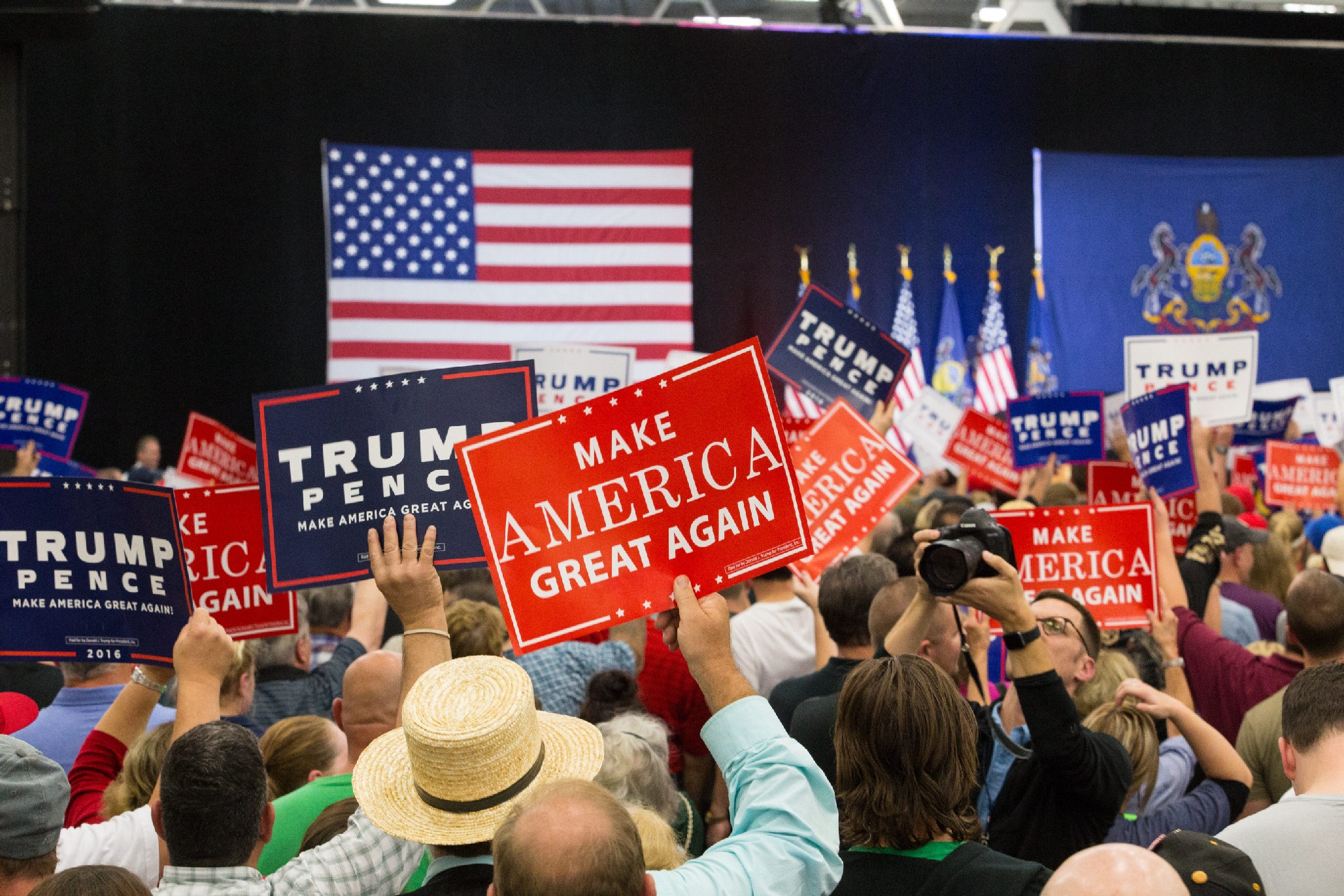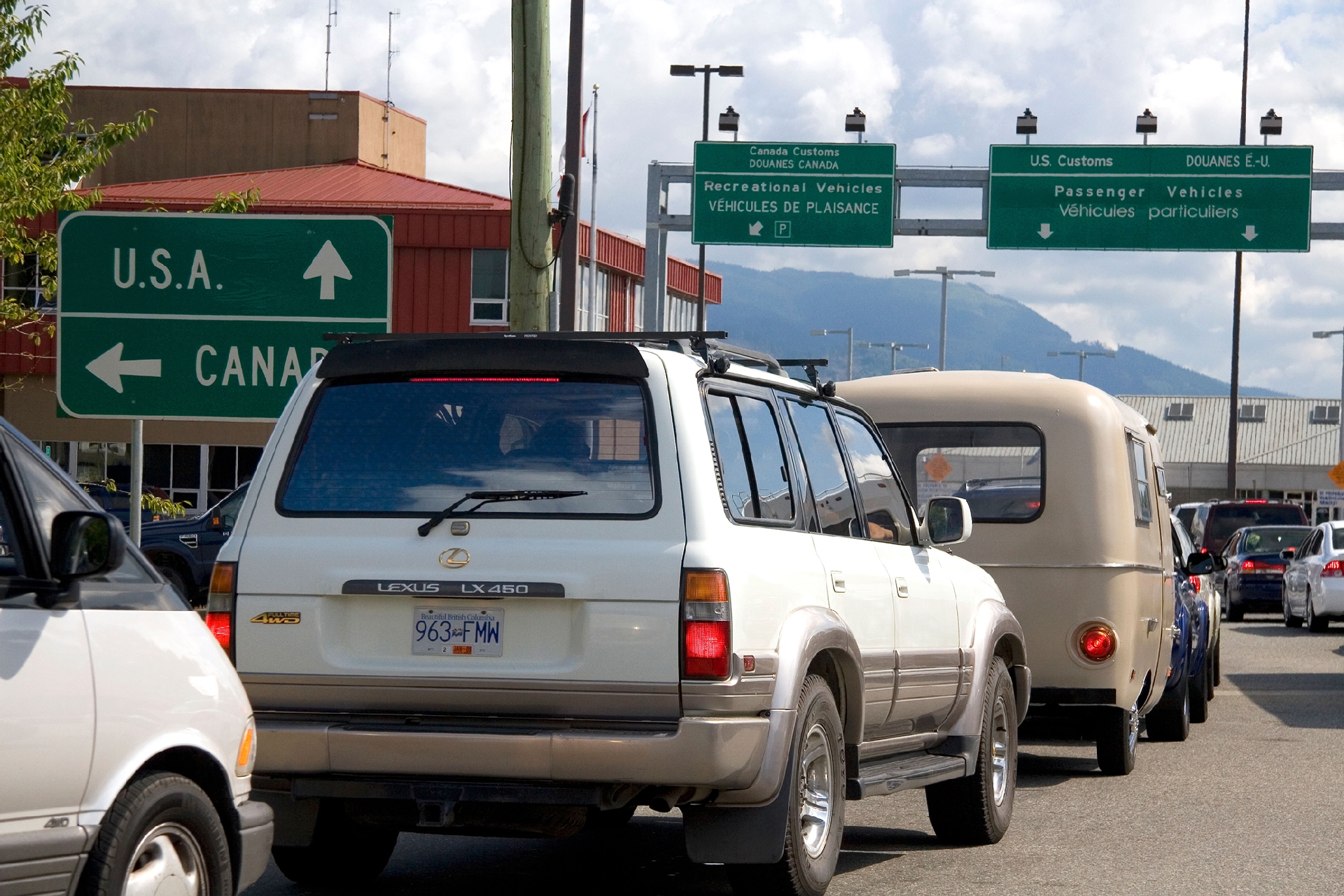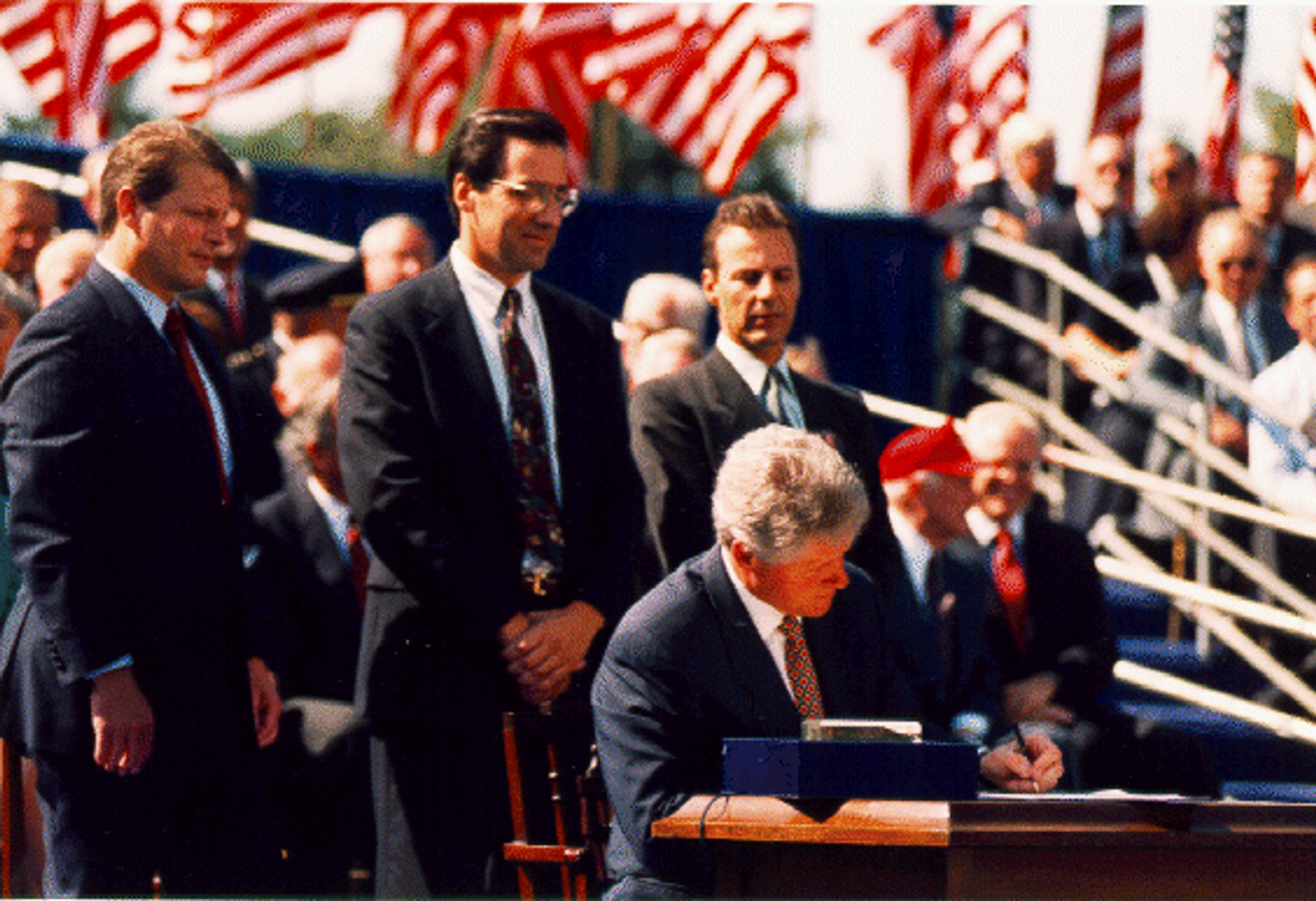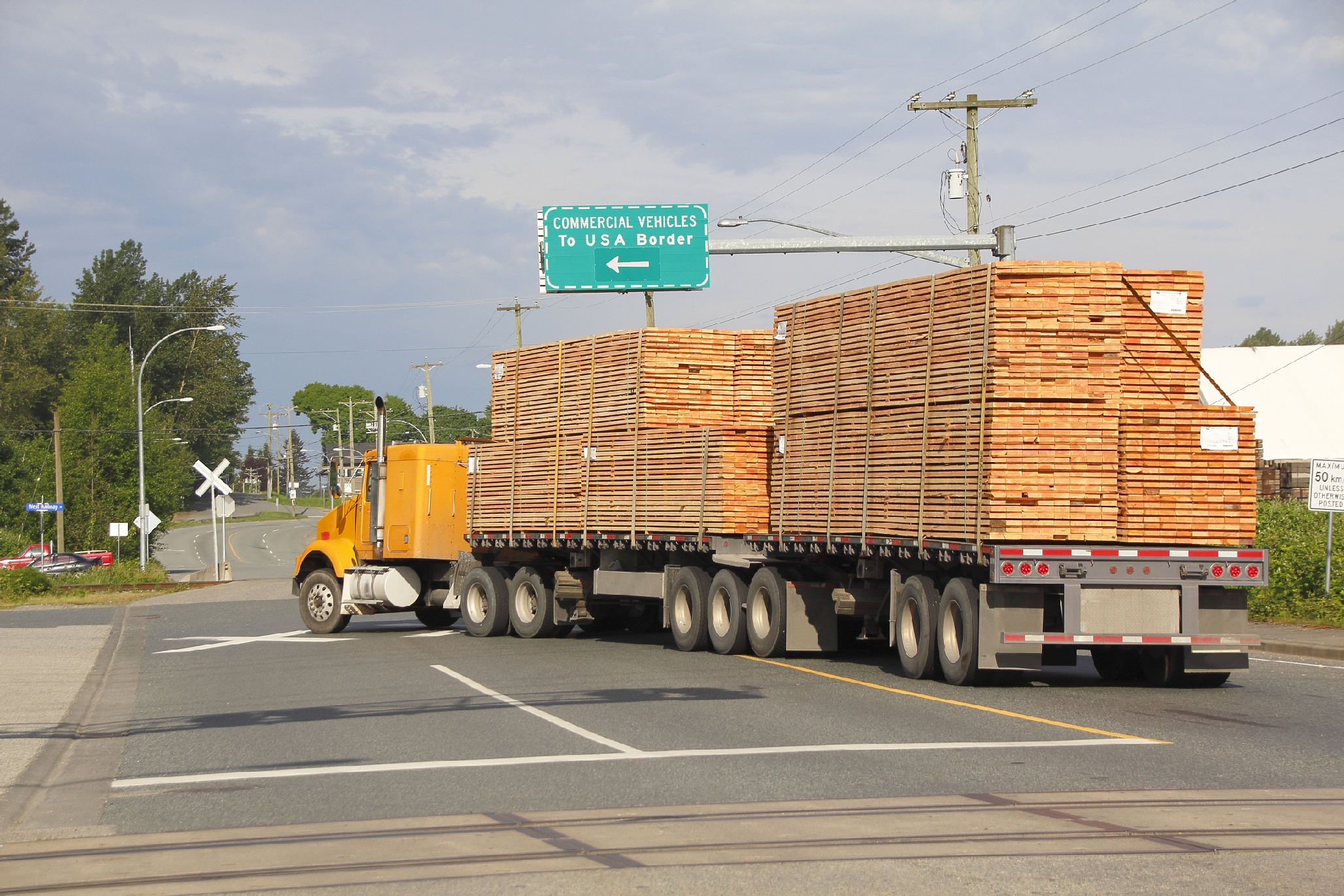Spring 2017
Trade Fears Grip America’s Northern Neighbor
– Clothilde Goujard
Although much of President Trump's protectionist rhetoric has been directed at Mexico, Canadian leaders are just as worried about what the new U.S. leader's policies will mean for their economy.
It’s a cold Thursday morning 583 miles north of Washington, D.C. and about 250 business managers have gathered in a hotel. Quebec has just gone through one of its worst snowstorms in several decades, but some participants have travelled all the way from Quebec City to attend an annual business summit in downtown Montreal.
They’re waiting for a specific talk, a sold-out event called “Vision and Outlook on Free Trade Agreements,” which was organized by the Conseil Québécois de la Coopération et de la Mutualité [Quebec Council of Cooperatives] and the Chamber of Commerce of Metropolitan Montreal to help Quebec businesses navigate the uncertain economic climate of 2017. It’s not yet clear what they will be told. The question of free trade has been everywhere since the election of President Trump, whose campaign was founded on protectionism, and no one can be sure what impact his policies will have on Canada.
The question of free trade has been everywhere since the election of President Trump, whose campaign was founded on protectionism, and no one can be sure what impact his policies will have on Canada.

There are questions to be answered about the renegotiation of NAFTA, a border adjustment tax, increased border security, lower corporate taxes on American soil, and relaxed regulations in the energy sector. As business managers are waiting for the talk, the southern neighbor and the direction of its new administration are unsurprisingly on the mind of most in the room.
“We need to prepare. In the agri-food industry, the intention to reopen NAFTA worries us, that’s clear,” says Jean-François Harel, general secretary at La Coop Fédérée, the second biggest agri-food cooperative in Canada, representing over 90,000 members. “Markets are interpenetrated, but there is a will to reopen [NAFTA] to supposedly improve it. What are we trying to do? It already works well.”
Doors open and the crowd moves into the banquet hall to greet former Quebec Premier Jean Charest, president of the International Cooperative Alliance Monique Leroux, and former Foreign Minister Pierre Pettigrew. The first question is for Charest. It is blunt and straightforward:
“Are you reassured?”
The former premier isn’t sure. Neither is Leroux, who participated in the first official Canadian meeting with President Trump. Trump campaigned on some policies that could be damaging to the Canadian economy, such as lowered corporate taxes in the United States that could threaten Canadian competitiveness, and others that could be beneficial, such as an investment in infrastructure. There is particular anxiety about the possibility of a “Buy America Act,” which could throw the economics of the entire continent into disarray. But to date, his plans remain unclear, even to the most experienced and well-connected politicians and economic leaders in Canada.
In the business community, there are hopes that the new administration will behave rationally.
In the business community, there are hopes that the new administration will behave rationally. Canada and the United States have enjoyed a stable and mutually beneficial commercial relationship since the Canada-U.S. Free Trade Agreement came into force 28 years ago. Every day, almost two billion U.S. dollars’ worth of goods cross the border and facilitated trade and investment led to the creation of about thirteen million jobs in the two countries — nine million in the United States and four in Canada.
“There is a political dimension to protectionism and a realistic dimension of the economy,” says Leroux. “Canada and the United States have a very balanced commercial relationship. I would even say it is globally in favor of the United States.”
She is cautiously optimistic since her meeting with President Trump in February:
“During the meeting we had, I felt the president was in a situation where he was asking questions to later think about where things will go. I believe he is someone who is able to look at the data, and his team as well.”
But while President Trump is polishing his economic strategy, Canadians are grappling with uncertainty, trying to prepare how to best protect their interests and adapt to changing regulations with little idea where the American administration is heading.
But while President Trump is polishing his economic strategy, Canadians are grappling with uncertainty, trying to prepare how to best protect their interests and adapt to changing regulations with little idea where the American administration is heading. They are carefully monitoring the news and some even read President Trump’s tweets, but aren’t sure if they are really representative of the decisions that will be taken.

In his office in Montreal, Pierre-Alexandre Fournier, CEO of Hexoskin, an innovative health startup selling wearable body metrics, is waiting to see how he will have to adapt his business strategy.
In a large, open space, twenty-five employees are busy working at their computers, some looking at data and programming, others handling sales and marketing. In a nearby room, a workshop is set to test and develop prototypes for future projects. The company, founded in 2006, is in the process of expanding. It is only March, but Fournier expects Hexoskin’s revenues to double this year.
The company has thousands of clients in the US, from hospitals and universities to government agencies like the Department of Homeland Security and NASA, and Fournier is watching the political situation closely.
“We follow presidential tweets, but we’re not sure it’s useful,” he explains. “We can read something and realize a week later that it’s not going to translate into a rule or law. We try to not rely on social networks or blogs, but to go to the source if possible, even if it’s sometimes complicated to find it, even on government websites.”
The uncertainty is not just on their end. Some of their American clients are hesitating, waiting to see how the president’s proposed budget will transform as it makes its way into law.
“The reality is we don’t know what will happen, so there are people who can react strongly,” he says. “But for us, we try to stay grounded and continue with our plan.”
Fournier has been preparing for years to be easily adaptable, regardless of who was going to be elected in November 2016. The company is well integrated in the U.S., with an office in San Francisco. One of their manufacturers is also on American soil, so depending on the situation, Hexoskin could move some of its production across the border.

Hexoskin employees regularly travel to the United States, but the travel ban has raised concern. Some people in the company are dual citizens, sharing citizenship between Canada and a country listed on the travel ban. Fournier is not certain they would able to enter the United States if the law is allowed to take effect.
“The travel ban doesn’t necessarily bother us. It’s more that we’re not certain if it’s something that is always going to be applied or from time to time,” he says. “When we’re not sure how [a rule] is going to be applied, we have to deal with it in a very conservative way.”
Every day, about 400,000 people cross the Canada-U.S. border. On its guide for business travelers to the United States, the Canadian Manufacturer & Exporters, a trade association, notes, “with more than four million businesspeople crossing the border every year to do business, facilitating cross-border business travel has become a key Canada-U.S. trade issue.”
The latest figures from U.S. Customs and Border Protection still show that the total number of Canadian travelers denied entry to the United States between October 2016 and February 2017 dropped. But in recent weeks, Dan Kelly, president of the Canadian Federation of Independent Business (CFIB), has heard about problems from some members trying to visit the United States.
“I’ve heard some stories about some people being refused access to go to the U.S.,” he says, “because they needed a working visa to go down there for a routine appointment. Things like that can create a few headaches if a business is unsure whether their staff is going to be given entry.”
Small and medium-sized businesses account for about a quarter of total Canadian exports, and about 90% of their exports go to the United States, putting Kelly at the forefront of these issues. Members of his organization have been reaching out with worries, and he tells them to contact their MPs.
“The worst thing for businesses is an unpredictable business environment and it seems like everything about this new administration is moving into the unpredictable category,” says Kelly, whose greatest area of concern is Trump’s apparent protectionist agenda.

“The biggest concern is the uncertainty that exists as to what it is the U.S. government will be pursuing with respect to changes to NAFTA,” he says. “There’s been rumors, but to date, nobody is certain what the U.S. will be pursuing.”
Although Kelly’s organization, the CFIB, is often critical of the government of Prime Minister Justin Trudeau, he feels it is doing “a very good job” in its early handling of the Trump administration, particularly when Trudeau promptly visited the White House after Trump’s inauguration.
“There has been some relief since Prime Minister Trudeau visited President Trump,” he says. “I think that calmed down some of the anxiety that Canadian entrepreneurs had, as the meeting apparently went quite well.”
Prime Minister Trudeau declined to comment on President Trump during the electoral campaign, and their relationship remains a work in progress. Even if the two countries have enjoyed a longstanding friendship, Mr. Trudeau and Mr. Trump’s styles and policies are very different, especially on a number of matters, including immigration and the environment.
In January, in his first cabinet shuffle since he came to power, Prime Minister Trudeau seemed to set Canada’s commercial relationship with the United States as a priority when he moved Chrystia Freeland, former international trade minister, to the higher function of foreign affairs minister. Freeland, who handled CETA, the free trade agreement with the European Union, and who, as a former economics journalist, used to live in the United States, was thought to be an asset in future dealings with President Trump.
Since the president’s inauguration, Canada’s federal and provincial governments have been proactively trying to establish relationships with their American counterparts, engaging in phone calls, visits to Washington, D.C., and meetings with American business representatives.
The Canadian business community was reassured by what seemed like a positive first meeting between Prime Minister Trudeau and President Trump and his team. In the weeks after, the Canadian minister of finance also visited the White House, summing up his visit with comments similar to those made by the Prime Minister about the importance of working together toward creating more opportunities for the middle class on both sides of the border.
“We will continue to work closely with the new U.S. administration and with the United States Congress on issues of mutual interest, including trade and investment in various sectors,” said John Babcock, spokesperson for Global Affairs Canada, the government's diplomatic and consular affairs department.
At the Montreal Economic Institute, Germain Belzile, a veteran economist, believes the Canadian government’s strategy regarding the United States will have to adapt, given the importance of the commercial issue.
“[The Canadian government will have to] adapt and react,” he says, “because we can’t let a competitive gap be dug between Canada and the U.S. in favor of the U.S. We depend too much on [the latter] to allow this.”
Through its network of embassies and consulates spread over the country, Belzile thinks Canada and its provinces could “play their cards well” to be able to negotiate in their favor, especially since most in Canada feel President Trump has suggested in his recent tweets and comments that his protectionist agenda was more specifically targeted at Mexico.

However, in recent weeks, Canadians have been incredibly worried they have miscalculated the situation, as U.S. Secretary of Commerce Wilbur Ross and President Trump have started targeting Canada’s dairy and softwood lumber industries. President Trump also recently announced he was “going to terminate NAFTA,” backing down after a phone call with his Canadian and Mexican counterparts.
The Canadian government has been vigorously defending its interests, while trying to prevent a potential trade war with their biggest commercial partner.
But the uncertainty persists, because there is a lack of understanding as to how President Trump will function within the wider political system.
“There’s uncertainty, too, caused by the fact Congress has a Republican majority that is not perfectly aligned with the president’s views,” says Belzile. “So what will Congress do?”
The stakes are high for Canada. Three quarters of its exports and an estimated four million jobs rely on the relationship with the United States. Canadian businesses have long benefited from having an immense neighbor with similar economic and political characteristics. How will that fare in a new era of “America First”?
Back at the hotel in downtown Montreal, speakers are offering several ways of dealing with the situation with so little knowledge of what things will be like, from focusing on trade relations with the European Union to courting countries that cannot easily trade with the United States. Canada’s minister of international trade recently came back from a mission in China to promote Canada’s forest industry, an effort to “actively explore new opportunities for Canada’s high-quality product.”
According to most, the Canadian business and political communities cannot just wait and dismiss the issue. Former Premier Charest is clear:
“The most important strategy for Canada is preventive, which is to say, to protect ourselves and to avoid the worst.”
Clothilde Goujard is a freelance journalist based in Montreal, Canada.
Cover photo courtesy of Kevin Lamarque/Reuters
.jpg&w=3840&q=75)